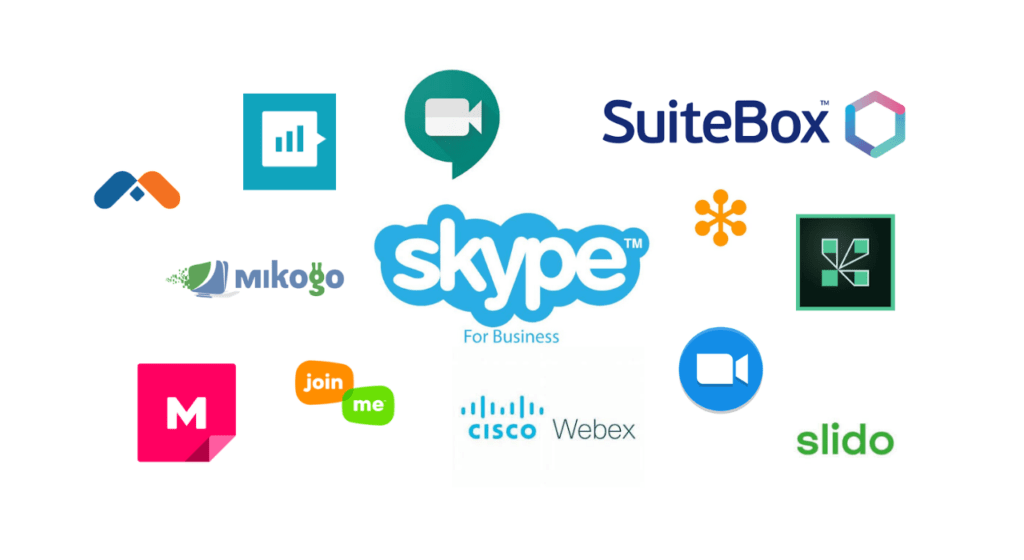Going online: not just a transition
Do you remember the first time that you used Slido or Mentimeter in one of the events that you attended? Were you amused, thinking they were nothing more than fancy tools? Or did you think instead: I wanna do that in my events too!? No matter how you saw them then, after a relatively short period of time they have become a permanent and unavoidable feature in event management. Maybe it is already the time to start thinking also about what we will do of all the new tools that we have got acquainted with during this long lockdown period.
Email and WhatsApp groups aside, the digital means of communication have always been part of the ENI CBC reality, but they have been limited to very specific tools. An increase in the use of video-conferencing could be signalled already during the second half of 2019 though, even if mostly limited to multi-programme coordination activities. Meeting in person made the difference. Because one of the key pillars of cross-border cooperation is in fact the capacity to establish direct relations among neighbours, sharing and exchanging (and why not? also arguing) face-to-face.
Unexpectedly, we are living in times when much of our personal and professional lives take place online. Something that not all of us were prepared for, but which we have quickly learned to live with. Even too quickly! This new situation gives us an opportunity to reflect already about the ways in which we can differently see our working future once ‘normality’ will be re-established.
It is therefore important that ENI CBC moves in the ways of the world. The first experiences with online networking events, monitoring or programming committee meetings and programme-specific webinars have shown the immense potential that online co-working can bring in order to complement (and maybe sometimes replace) our traditional means of cooperation. Even if they do not excel in terms of ‘human touch’, they save resources, reduce carbon print, allow for higher attendance rates, are shorter and more focused and, if using the adequate tools, they can ensure a sound degree of interaction with the participants.
OK: even joining a simple online meeting can sometimes pose problems, let alone trying to fill in an empty canvas with virtual sticky notes using Mural, or splitting into break-out rooms, exchanging in groups and coming then back to the main room in Zoom, just to mention some of the most frequently used collaborative tools these days. And we are all concerned about the security flaws that an unexpected exponential growth starts showing in some of them. But they work and they are full of possibilities; better take the best out of them during this period rather than just waiting for a future which, as seen from today, remains uncertain. It comes without saying that, with a timid re-opening taking place already at different pace from country to country, and even from region to region within the same country, it is difficult to predict when we will all, as a community, find ourselves again in the same movement conditions. We cannot be in stand-by sine die.
Are these novelties here to stay? Sounds like definitely yes! From an overall perspective, online events can be used as a way to enrich bigger, presential events, either in the run-up phase or in their follow-up. In day-to-day work, and even if now we may feel ourselves close to the saturation point, online meetings can speed up decision-making and can help creating more agile cooperation dynamics for those processes where there is a need for regular exchanges. Beauty of relativity, when it comes to ‘human touch’, an online meeting is way worse than a conference like the one we had earlier this year in Brussels, but it is way less impersonal than a written procedure, isn’t it? And why meet your neighbour only once a year in a Joint Monitoring Committee?
On its side, TESIM has spent a considerable amount of time in reflecting how digital co-working can be integrated in its own workflows, now and in the future, and have tested multiple tools in practice. Many of you have attended our first webinars and on-line capacity buildings; with all due limitations, and in spite of our not-so-rich experience, you have provided us a very positive feedback. By the way, the materials from the networking event on monitoring and the thematic event on people-to-people cooperation are ready for download.
The start is promising but, at the same time, it is just a small appetizer of what we have in the pipeline. Keep you posted!
